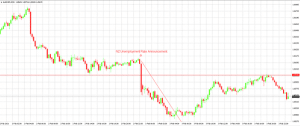- Home
- News & Analysis
- Economic Updates
- The kiwi shooting star
The kiwi shooting star
February 4, 2021By Luis Sebastian
The Kiwi unemployment rate dropped to 4.9% from 5.3% in the quarter ending December 2020, Statistics New Zealand announced yesterday; it is worth noting some Economists had projected a rise to 5.6%. The Kiwi dollar (NZD) soared after the rate fell unexpectedly in the fourth quarter as the country boomed after a lengthy recession.
Jobs increased by 0.6% during the last three months, exceeding the median expectation of 0.1%. New Zealand’s progress in combating the coronavirus helped the country’s economy rebound rapidly, spurred job growth, and bolstered business trust. Surveys indicate that the job market will begin to develop, suggesting that the central bank will not be needed to boost inflation.
The Reserve Bank of New Zealand (RBNZ) will determine if the economy requires additional assistance at its February 24 policy decision; as of November last year, it had predicted unemployment to increase into the 6.4% range this year. Most analysts predict the official cash rate to stick at 0.25% and not go up any time soon. The RBNZ is now far closer to meeting its two monetary policy goals than previously expected. New Zealand’s economy has been returning to its former height and attracting more people to search for employment.
Australia is also experiencing a V-shaped turnaround as morale is strong, and the economy is doing well. The unemployment rate is projected to decrease over the next two years. So far, it has gone down to 6.6% from a peak of 7.5%.
Source: GO MT4
By Luis Sebastian
Disclaimer: The articles are from GO Markets analysts, based on their independent analysis or personal experiences. Views or opinions or trading styles expressed are of their own; should not be taken as either representative of or shared by GO Markets. Advice (if any), are of a ‘general’ nature and not based on your personal objectives, financial situation or needs. You should therefore consider how appropriate the advice (if any) is to your objectives, financial situation and needs, before acting on the advice. If the advice relates to acquiring a particular financial product, you should obtain and consider the Product Disclosure Statement (PDS) and Financial Services Guide (FSG) for that product before making any decisions.
Next: Preview: Non-Farm Payroll announcement
Previous: See-sawing equity markets, US Dollar strength and stimulus hopes





